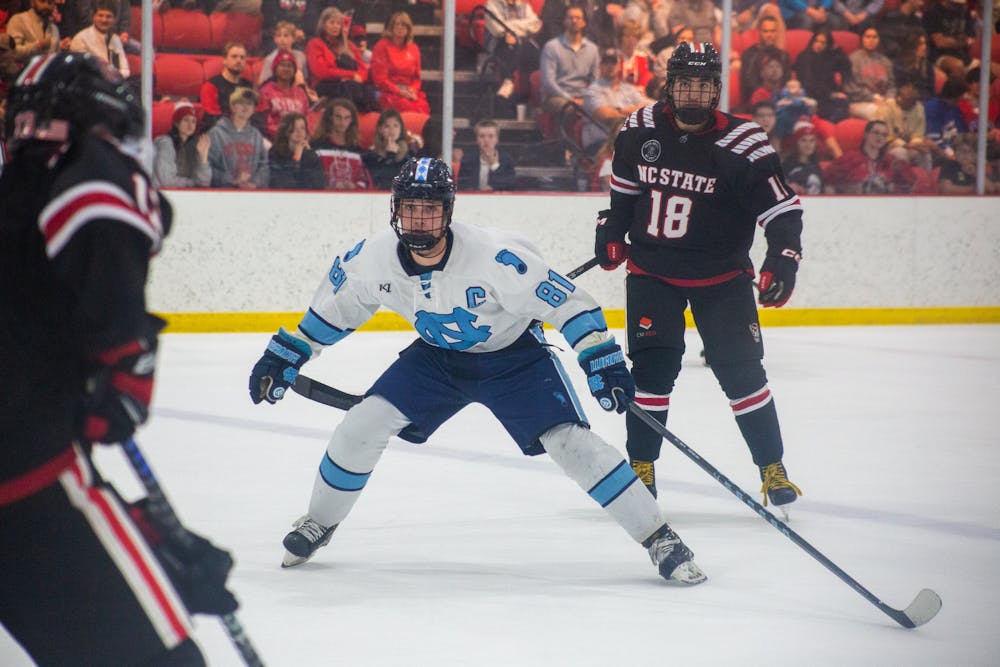As the buzzer sounded at the end of the third period, the North Carolina club ice hockey team felt none of the relief that typically follows the end of regulation.
Rather than being comforted by the four walls of the locker room, the Tar Heels retook their place on the ice for another five minutes of play — their first three-on-three sudden-death matchup of the season.
“It’s always fun when you get to play extra hockey, especially three-on-three” senior forward Henry Foster said. “It’s a good time. I could feel everyone kind of tense up because it’s natural. It’s overtime. It’s sudden death.”
On Friday, North Carolina traveled to Raleigh to play N.C. State. After dropping three straight games at the ACHA showcase earlier this month, the Tar Heels were looking for a bounce-back win against one of their biggest rivals. However, after allowing the Wolfpack to score late in the third period, they found themselves in overtime before ultimately falling 5-4.
For North Carolina, three-on-three play is not entirely unfamiliar — the Tar Heels frequently drill smaller games at practice with only four players on each team on one half of the rink.
However, when the space is increased by 100 feet, the situation completely changes. It’s difficult to gain possession once it’s lost. Man-on-man play becomes more critical. Every face-off counts.
Three simple rules emerge during overtime: keep possession, stay on your man and don’t allow odd-man rushes from opponents.
In the quick break before overtime, head coach Adam Dauda tried to emphasize the differences between regular and overtime play to his exhausted team.
“It’s almost a different game because as soon as you get a little bit of a head start on your opposing player that’s covering you, it’s an odd-man rush immediately,” Dauda said.



